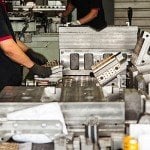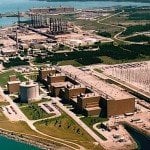
As the founder of three disruptive companies; Tesla, SpaceX, and PayPal, Elon Musk is not just another innovator but also a disruptor and game-changer all wrapped in one. But, how did he became so successful?
Thinking from first principles
Elon Musk approaches challenges with a Physics mindset based on ‘First Principles’ that allows him to focus only on the most fundamental truths in specific areas. This mindset only assesses the contributors to the challenge that are almost indisputably correct, allowing him to understand the factors contributing to the challenge and the best course of action to resolve it. Using a semantic tree, Elon Musk said,
“Make sure you understand the fundamental principles, the trunk, and big branches before you get into the leaves or there is nothing for them to hang on to.”
Applying this thinking on SpaceX means that he assessed the cost of a whole rocket and the cost of each component of a rocket. Subsequently, he analyzed the availability of cheaper alternative parts or whether he can manufacture some of the parts himself. With these fundamental truths, he realized that building a rocket is not as expensive as most people thought to provide him a perfect opportunity to capitalize on an industry that most investors avoided. This thinking enabled him to launch SpaceX, manufacture rockets at a lower cost than competitors, and become successful.

Embraces Negative Feedback
Most people are discouraged by criticism and negative feedback; that is why they are not Elon Musk. He not only listens intently to any negative feedback but also proactively seeks negative feedbacks, which is highly unusual because most people seek to avoid criticism and negativity. With a wide array of negative feedbacks, he can see his blind spots and them promptly and effectively. Instead of asking friends what they like about his products, Elon Musk asks them, “what they didn’t like.”

Puts in the time
On average, most employees churn out 40 hours a week. This may seem like pure laziness compared to Elon Musk’s 80 to 100-hour workweeks. By putting more hours into his work, Musk has effectively combated several high-risk factors that threatened some of his ambitious projects. “If other people are putting in 40-hour workweeks, and you’re putting in 100-hour workweeks, you’ll achieve in four months what it takes them a year to achieve,” according to Elon Musk.

Grander and Global Visions
 For Elon Musk, his projects are not simply for profit but also to address global issues and challenges that impede people from attaining their full potential in life. This is particularly evident in PayPal, which has enabled people to work remotely from any corner of the world and be paid instantly. Also, companies can acquire talent beyond their geographic locations and pay them using PayPal. The numerous global application of PayPal has enabled many to attain their full potential while making Elon Musk financially successful along the way.
For Elon Musk, his projects are not simply for profit but also to address global issues and challenges that impede people from attaining their full potential in life. This is particularly evident in PayPal, which has enabled people to work remotely from any corner of the world and be paid instantly. Also, companies can acquire talent beyond their geographic locations and pay them using PayPal. The numerous global application of PayPal has enabled many to attain their full potential while making Elon Musk financially successful along the way.
Focuses on Core Competencies
Elon Musk understands and acknowledges that he is strong in some areas and weak in other areas. To be successful, he undertakes only the tasks that he is good at and delegates the tasks that he is not skilled to do to talented members of his team. Instead of micro-managing his team, he provides them with the opportunity to practice their craft
Hires and Retains the Best
Elon Musk not only strives to hire the best but also ensures he retains high-performing and highly talented people. This is important because he acknowledges the fact that he will have to depend on their skills, expertise, and inspiration to attain success. “Praise onto others, not blame,” says Elon Musk.



































